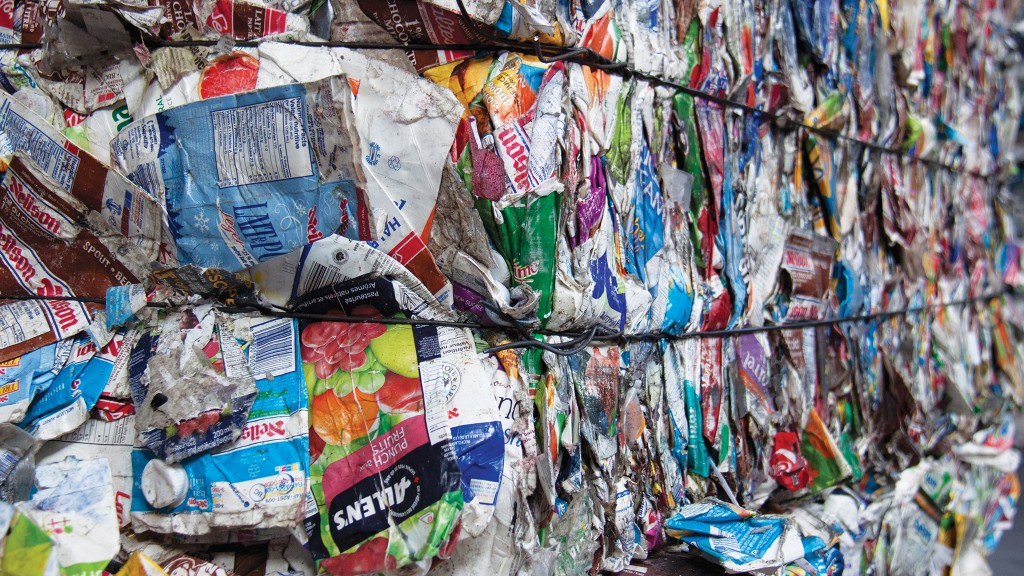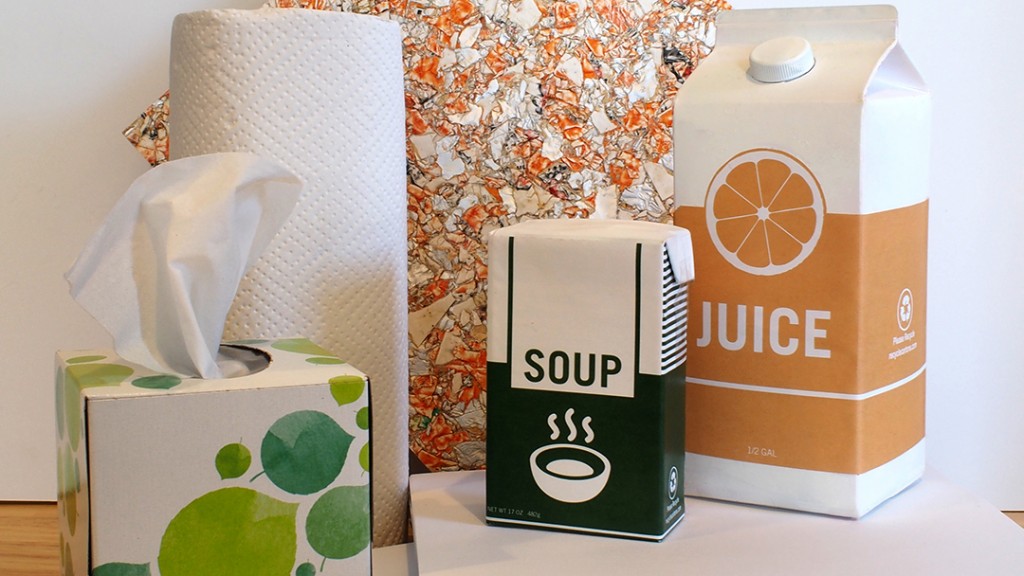
As for most industries, the last year has been a challenging one for carton recycling in Canada. Certainly, at the Carton Council of Canada (CCC), we have witnessed a year characterized by significant fluctuations in both demand and price. Navigating these changes has not been for the faint of heart, nor should we expect that we've seen the last of pandemic-related impact on our business. Nevertheless, there are strategies we can use to help mitigate the challenges and maximize the opportunities ahead of us. Without a doubt, this is an excellent time to recommit to best practices like positive sorting, bale quality and consumer education.
Following are four of the top trends that will influence the state of carton recycling in Canada over the next year.
1. Pricing, end markets and regionality in carton recycling
As cartons are a substitute for sorted office paper (SOP), their value typically fluctuates relative to that grade. Panic-buying and hoarding of tissue products in spring 2020 occurred simultaneously with office closures brought on by pandemic lockdown measures. This led to substantial reductions in the supply of SOP, resulting in significant price increases for the grade in April through June 2020. Carton pricing increased accordingly.
However, prices for SOP, and for cartons, began dropping in August. This was also driven in large part by the pandemic, given that a large proportion of recovered SOP is used to make tissue products for the away-from-home sector. That sector continues to be adversely affected by the pandemic, as many restaurants, stadiums and other venues remain closed.
In late 2020, prices for tissue grades including SOP started inching upward slightly. Unfortunately, the value of cartons has not followed suit in some locations, such as Ontario. One of the reasons for this is the high cost of transportation.
In neighbouring Quebec, however, the situation is different. Since the Sustana mill in Lévis, Quebec, began purchasing bales of cartons for transformation into pulp, soon after the start of the pandemic, sales of this material by municipal recycling facilities in the province have more than doubled (3,200 tonnes of cartons were sold to end markets in 2020, compared to 1,260 tonnes in 2019). The higher sales volumes were also accompanied by an increase in the average price: it rose from $17/tonne in November 2020 to $28/tonne in December 2020, to $30/tonne in January 2021.
Sustana's arrival in the Quebec market is undoubtedly an important factor in these increases. In even better news, the Sustana facility is also considering adding the capacity to recycle up to 15,000 tonnes of cartons annually in the future (growing from an estimated 3,330 tonnes total cartons recycled in 2020).
Likewise, in addition to the seven currently established carton recycling facilities in North America, including two Kimberly-Clark mills in Mexico, there is growing demand for cartons from mills located in India as well as Vietnam. Those MRFs that are located close to a port are best positioned to benefit from this. In addition, there may be a new end market in Connecticut, U.S., in the near future.
There is also a looming fibre shortage expected once away-from-home markets open. This is sure to be beneficial to carton recycling.
All of the above points to a currently dynamic and challenging market, with many moving parts, which can be tough to navigate. If any MRFs or other recycling facilities are having difficulty moving carton loads, they can always reach out to the Carton Council of Canada for help.
- Characterization of materials exiting sorting centres conducted by Éco Entreprises Québec and RECYC-QUÉBEC (document available in French only).
2. Continued focus on positive carton sorting
Another critical element supporting carton recycling success is positive sorting. While we do know that some cartons are sent for recycling along with other fibre types, such as mixed fibres and boxboard, sorting cartons into their own grade maximizes their value and supports the development of new carton-focused end markets.
Those Quebec MRFs that positively sort cartons - currently 11 out of 23 facilities in the province - have certainly understood this. And they seem to be doing a remarkable job, judging by a recent report characterizing materials exiting sorting centres conducted by Éco Entreprises Québec and RECYC-QUÉBEC.
These two organizations recently published the results of the first phase of their study, covering the period from June 2018 to August 2019. They show that carton bales from participating MRFs had the highest purity of all the materials audited. On average, they consist of 96 percent gable-top and aseptic containers, as well as other generally accepted fibrous materials, and therefore contain very little in the way of contaminants.
As the success of these MRFs demonstrates, producing quality bales of cartons is something that is entirely possible. There is no reason to believe that this success is not being, or cannot be replicated in other facilities. At the Carton Council of Canada, we are working to encourage and assist other MRFs in Quebec and elsewhere in Canada to start positively sorting cartons.
3. Consumer education: a continual process
Of course the recycling equation isn't complete without considering the role of consumers and consumer education. CCC recently wrapped up an eight-week social media campaign focused on increasing the public's awareness around recycling. While we saw encouraging engagement in the online campaign, we also observed continued skepticism and misinformation. Some of the most common questions related to the differences among recycling programs in different regions, whether there is a need to rinse out cartons, and whether cartons actually in fact end up in recycling facilities.
Overall, the campaign reinforced the notion that ongoing consumer education is critical, particularly at the local level. Arming consumers with relevant, timely and region-specific information helps combat some of the most prevalent myths and misconceptions.
To support local awareness efforts, CCC recently launched its newly updated Image and Ad Bank, featuring numerous downloadable ads and images that can be customized to fit any interested parties' education efforts.
4. Away-from-home recycling
In addition to supporting homeowners' recycling efforts, away-from-home recycling continues to be one of CCC's priorities. This is particularly relevant in schools, where a large number of drink boxes and small milk cartons are consumed. We believe there is a strong link between being active and present in schools and improving the recovery performance of small carton formats. This seems to be particularly true with respect to aseptic cartons, which lag in capture performance relative to larger carton formats.
To this end, EcoSchools Canada to develop a set of Best Practices for carton recycling at schools, with versions for provinces where cartons are collected curbside and for those that rely on a deposit system. We remain committed to supporting the success of our industry partners and welcome the opportunity to provide information, resources, ideas and support. Education and practice of good recycling habits at a young age is very important to raising future recyclers.
So far, 2021 is shaping up to be another challenging year. We should expect to see continued fluctuations in volume and price for recovered cartons. However, we have important tools we can use to continue to improve both the capture and recycling rates of cartons across Canada. Technology is helping us increase the quality of our bales, new end markets may be in sight and consumers remain critical partners in our efforts.
Isabelle Faucher is the managing director of the Carton Council of Canada. Read more from Isabelle Faucher in her latest blog.
This commentary was first published in the April 2021 edition of Recycling Product News, Volume 29, Number 1.



